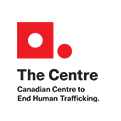In The Centre’s last blog post, we discussed some of the financial difficulties survivors of human trafficking face once they leave their trafficking situation. In Canada, initiatives that offer support to survivors as they work towards financial independence have emerged in the last few years, but there is still more work to be done by the financial sector to help survivors of human trafficking.
What is being done to address these issues in Canada and beyond?
In 2017, The Centre worked together with Richard Dunwoody to develop a person-centered, trauma-informed framework for financial institutions and lenders to assist survivors of trafficking who had been victims of coercive debt and fraud during their trafficking experience. In the years since 2017, Richard Dunwoody has launched Project Recover, which offers direct pro-bono support, guidance, advice and advocacy to survivors of trafficking who are dealing with the negative impact of coerced or fraudulent debt on their credit profile. To date, Project Recover has had a 100% success rate in advocating on behalf of survivors of sex trafficking. Project Recover also offers a number of practical resources for survivors and social service providers, and a toolkit about human trafficking for Canadian lenders. To request more information about Project Recover’s services, processes and advocacy, or to connect directly with Richard or Nancy Fung, please see the Project Recover Contact Us Page or call the Canadian Human Trafficking Hotline at 1-833-900-1010.
Another encouraging financial initiative that The Centre has had the privilege to be part of is the Finance Against Slavery and Trafficking’s Survivor Inclusion Initiative. The goal of this project was to develop a common framework to provide basic financial services to survivors of human trafficking who may have been victims of identity fraud, or whose bank accounts may have been taken over by the trafficker for money laundering or other criminal purposes. These activities tarnish a survivor’s credit worthiness and can increase their risk of revictimization. The framework for financial institutions is meant to provide trauma-sensitive, victim-centered services to survivors of trafficking with a special focus on confidentiality and privacy, informed consent, and the importance of creating a safe, supportive banking environment.
Since the Survivor Inclusion Initiative was launched, a number of international financial institutions have partnered with anti-trafficking NGOs to develop processes which empower survivors and provide access to financial services. In Canada, leaders at Scotiabank and Deborah’s Gate, an anti-trafficking program from The Salvation Army Canada, have successfully piloted this program to provide no-cost access to financial services for Canadian survivors of trafficking and financial literacy assistance with a specially designated advisor. The Salvation Army’s Anti-Trafficking Programs played a critical role in developing this gold standard process that put the expertise and lived experience of survivors at the heart of the project.
More recently, dedicated Anti-Money Laundering specialists at the Bank of Montreal have also embarked on their own Survivor Inclusion Initiative program. We are hopeful that this will become a permanent fixture at all of the major banks in Canada and a standardized way to address human trafficking and support survivors.
While the Survivor Inclusion Initiative seeks to address human trafficking by providing financial access and, thus, assistance with rebuilding a survivors financial standing, The Centre remains hopeful that the initiative will move towards addressing survivor’s credit-related issues in the future.
What else can the financial services sector do to combat human trafficking and support survivors?
- Adopt the Survivor Inclusion Initiative and partner with anti-trafficking organizations and survivor consultants to develop and implement person-centered, trauma-informed processes that expedite access to critical banking services and financial literacy programs that financially empower survivors of trafficking.
- Offer low- to no-cost bank services to survivors, with the opportunity to advance to a standard account with other privileges after a certain period of successful account maintenance.
- Include Human Trafficking/Sexual Exploitation as a circumstance which would allow survivors of human trafficking to apply for Exceptional Circumstance Review on ‘incomplete’ student loans in every province and territory.
- Implement a process in which survivors of trafficking can apply to have fraudulent and coerced consumer debt reviewed, removed from credit reports, and forgiven.
- Train all front-line staff on the crime of human trafficking and its intersection with financial services. Make the Canadian Human Trafficking Hotline number visible in branch locations, on marketing materials, and websites.
- Pass federal legislation to enforce transparency around beneficial ownership – i.e. businesses will be mandated to disclose ownership, which would allow banks to collect information about persons associated with legitimate and illicit activity.
- Provide additional support to federal agencies and law enforcement partners responsible for investigating suspicious transactions reports that identify money laundering activities related to human trafficking incidents.
- Collaborate with community-based organizations to develop programs in-house which offer employment, retraining, and education for survivors of trafficking in the financial services sector.
